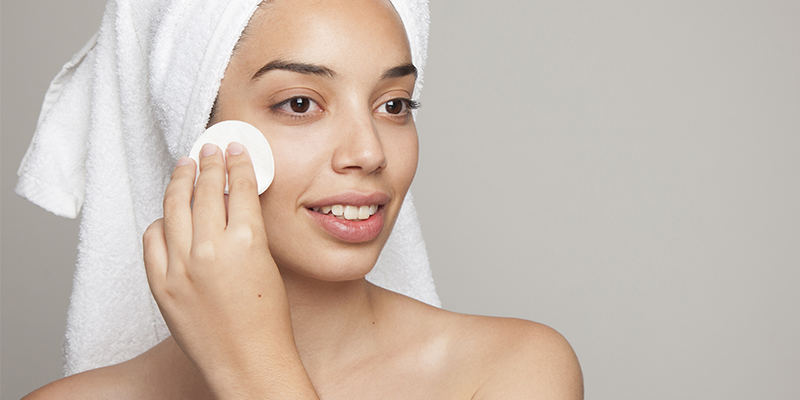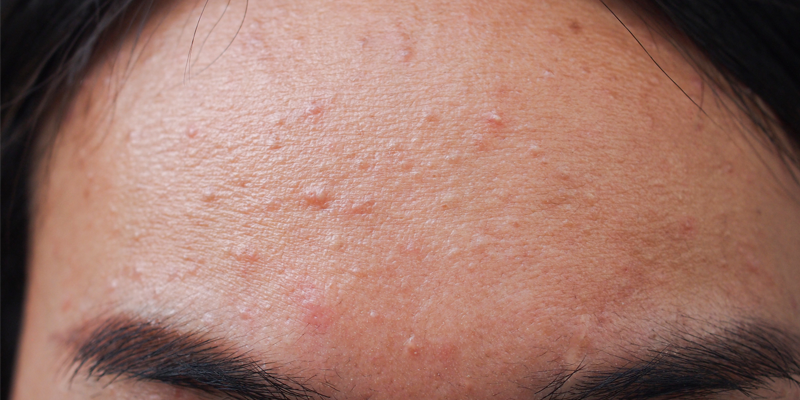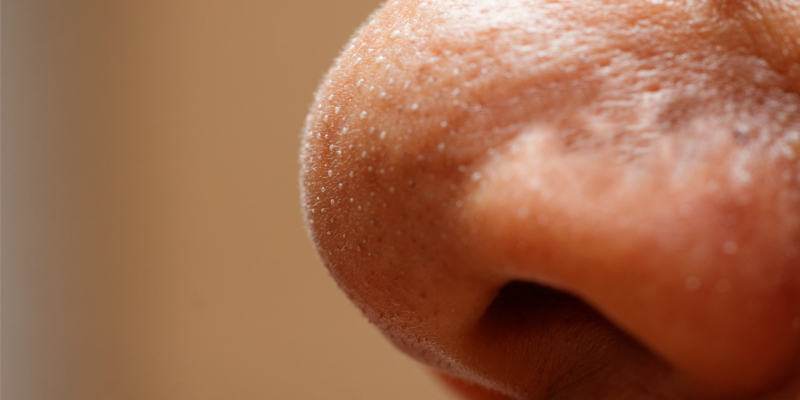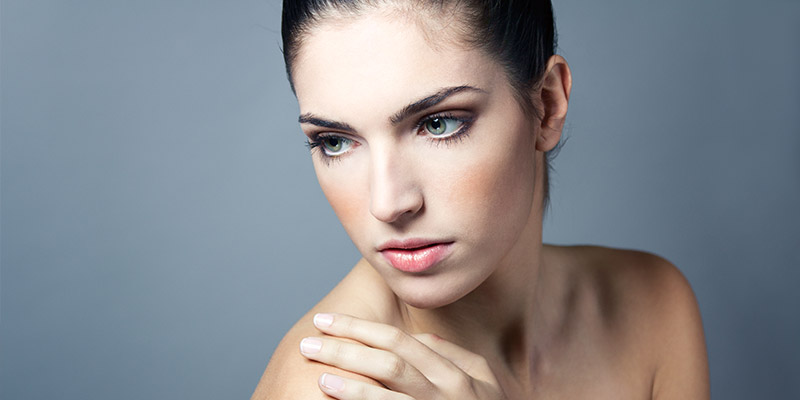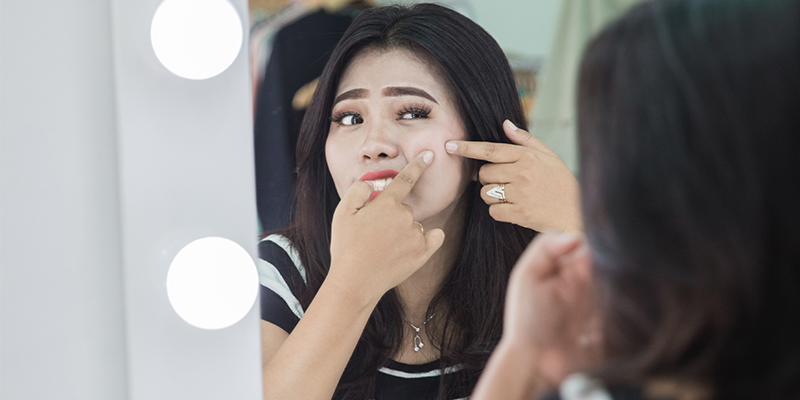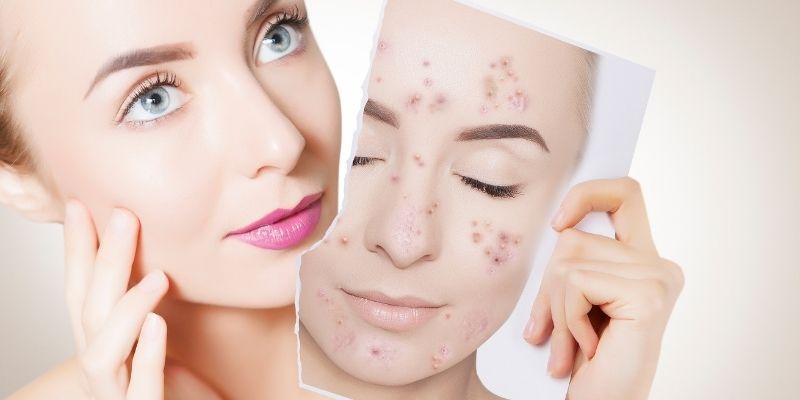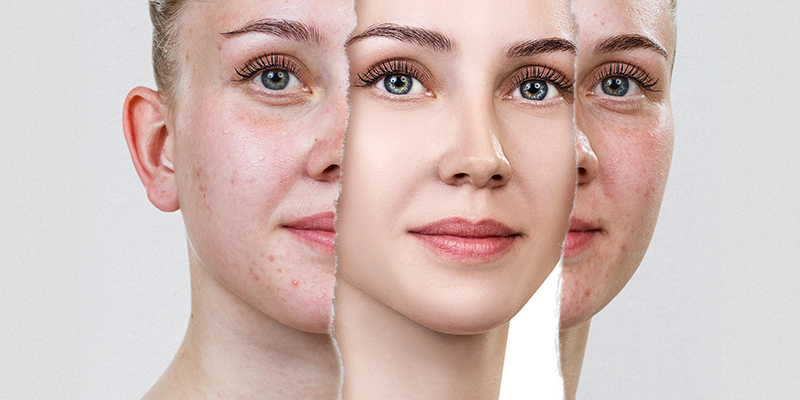How To Treat Acne With Benzoyl Peroxide?
Benzoyl peroxide is an antibacterial and anti-inflammatory substance, known to treat mild to moderate acne when it is applied topically over the skin. It decomposes to release oxygen which kills acne producing bacteria. However, in case of treatment of severe acne, it can be used with chemical peels, oral antibiotics and other topical medications.
Does Benzoyl Peroxide Help In Treating Acne?
Benzoyl peroxide (BPO) is a drug agent that dermatologists use in combination with other antibiotics to treat acne. BPO has exfoliative, anti-clogging and anti-inflammatory properties. It works to destroy acne-causing bacteria in your pores. It comes in 2.5%, 5%, and 10% concentrations. Let’s know the common applications of BPO:
- Most important use for benzoyl peroxide (BPO) is to treat mild to moderate acne lesions. Gel, creams and; both forms of BPO are used on acne lesion sites as it has bactericidal effect on bacteria associated with acne. These bacteria induce antibiotic resistance. Combining BPO with other plant extracts, has more powerful effect in treatment of acne.
- Benzoyl peroxide helps in decreasing excess oil on skin and thus helps in reducing acne breakouts.
- Benzoyl peroxide has strong antiseptic and oxidizing properties.
- It helps in removing stains.
Must Read: How Long Does It Take To Treat Acne?
How To Use Benzoyl Peroxide For Acne?
It is recommended to apply this solution twice a day in all the affected areas. When you initially start using this chemical, you will be prescribed to use a strength of about 4%- 5% of the solution to avoid skin irritation. And, the strength of the solution is gradually increased based on how the skin reacts to this chemical.
Note that creams and gels are advised to be applied for about fifteen minutes before you wash the affected area and pat it dry with a clean towel. While using ‘face wash’; you must wet your skin first. Then gently wash the areas which are affected. Keep it for a minute before rinsing it off. Pat the area dry, using a clean dry towel. Once your skin is used to the chemical, you can apply it twice a day and leave it on.
Do You Need A Prescription For Benzoyl Peroxide?
Benzoyl peroxide is available over the counter and comes in several forms – cream, gel, lotion, soap and face wash in concentrations ranging from 2.5 to 10 per cent. You don’t need a prescription to buy these products. Although benzoyl peroxide is a harmless antibacterial and anti-inflammatory agent, there is a possibility that it may not be suitable for your skin. Common side effects of BPO include dry skin, scaling, redness, burning and stinging. It is rare for the benzoyl peroxide to interfere with other drugs. Considering the side effects, consulting a dermatologist is safe before using any such product.
Must Read: Do Topical Antibiotics Help To Treat Acne?
How Long Can You Apply Benzoyl Peroxide?
You may apply this twice a day or as per the direction of your dermatologist. Post application, you must leave it for 15 minutes or as directed. A course of benzoyl peroxide mat need upto 6 weeks to deliver good results. However, this duration of treatment may vary based on the severity of the condition and individual skin type.
What Happens If You Stop Using Benzoyl Peroxide?
Benzoyl peroxide is not a cure for acne, but, it treats acne and helps in reducing skin bacteria. If you apply benzoyl peroxide continuously for a certain period of time, it results in reduction of acne lesions. Therefore, once you stop using this chemical, the bacteria that is causing acne, will reoccur and as a result your acne will re-appear.
What Are The Side Effects Of Benzoyl Peroxide?
There are no known major long-term side effects of benzoyl peroxide. As this chemical reduces the oil production of the skin, it results in dry skin, which can be tackled using a non-oily moisturizer. In some cases, you may observe redness and skin irritation, which is rarely severe and does not last longer than a week. It is proven that benzoyl peroxide can decrease skin bacteria, although it does not cause bacterial resistance.
Other common temporary side effects of BPO are:
- Mild stinging
- Burning
- Itching
- Tingly feeling
- Skin dryness
- Peeling
- Flaking
- Redness or other irritation
Benzoyl Peroxide Vs Salicylic Acid
Salicylic acid is a popular alternative to benzoyl peroxide, which is easily available. Salicylic acid is known to remove dead skin, so, while benzoyl peroxide is an antibacterial agent, salicylic acid is a keratolytic agent. Salicylic acid is available in a variety of forms, including gel, cream, face wash or medicated pad.
Benzoyl Peroxide Vs Vitamin A Creams
Vitamin A creams, such as retin A, differin and renova, are a good alternative to benzoyl peroxide and are known to help in treating acne effectively. These creams contain retinol and comprise of a less concentrated form of Vitamin A.
Must Read: How To Get Rid Of Acne Quickly?
Can Benzoyl Peroxide Damage Skin?
It is rare that benzoyl peroxide, when topically applied on the skin, reacts to other drugs that are taken orally or are injected into the body.
Here are certain safety tips:
- It is always better to seek advice from your dermatologist to weigh all the pros and cons of using this chemical before you start using it.
- It is important to understand that benzoyl peroxide does not react well when used with tretinoin, which is a topical medicine capable of causing severe skin irritation.
- Keep this chemical away from your mouth and eyes, while applying it on the affected areas.
- Additionally, do not use benzoyl peroxide if your skin is sunburned, dry, chapped or irritated.
- It is also recommended to avoid this chemical on open wounds or areas of eczema, until these areas are fully healed.
- It is important to remember that you need to avoid the sensitive areas of your skin/face such as nostrils, eyes and mouth, while applying benzoyl peroxide.
Must watch – professional acne treatments
Benzoyl peroxide, over the years, has become the top most solution for treating acne as it kills acne, reduces skin bacteria, and unclogs skin pores while keeping them clear. And, in comparison to other acne fighting agents, this chemical is friendlier to the skin and absolutely proficient in healing/treating acne.






